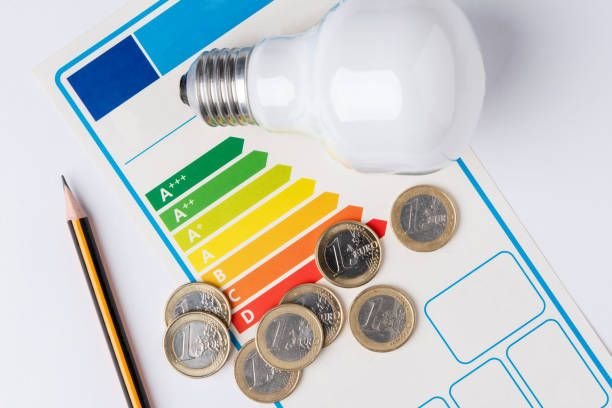In today’s rapidly evolving business landscape, energy costs play a significant role in a company’s profitability. As businesses strive to become more sustainable and efficient, the demand for energy comparison services continues to grow. This article explores the future of business energy comparison here in the UK, highlighting key trends and innovations that are shaping the industry.
I. The Rising Importance of Energy Comparison
In an era of rising energy costs and increasing environmental consciousness, businesses are recognizing the importance of energy comparison as a strategic tool. By comparing energy plans and providers, businesses can identify cost-saving opportunities, optimize their energy usage, and reduce their carbon footprint. The ability to make informed decisions about energy consumption has become a crucial factor in maintaining a competitive edge.
II. Technology-Driven Solutions
Advancements in technology are revolutionizing the way businesses analyze and compare energy usage. The following subsections explore various innovative solutions that are transforming the energy comparison landscape:
- Smart Metering and Real-Time Data
Smart metering has gained traction in recent years, enabling businesses to monitor their energy consumption in real-time. These devices provide accurate and up-to-date information about energy usage, allowing businesses to identify areas of energy wastage and implement measures to reduce costs. Smart metering also facilitates the integration of renewable energy sources by providing data on energy generation and consumption. - Artificial Intelligence (AI) and Machine Learning
AI and machine learning algorithms have the potential to revolutionize energy comparison services. These technologies can analyze vast amounts of data, identify patterns, and provide personalized energy efficiency recommendations to businesses. AI-powered energy comparison platforms can help companies make data-driven decisions to optimize their energy usage, predict future energy needs, and identify the most cost-effective energy plans. - Internet of Things (IoT) and Energy Management Systems
The IoT is playing a crucial role in energy management by connecting devices and systems to collect and exchange data. Energy management systems powered by the IoT can monitor and control energy usage in real-time, allowing businesses to optimize their operations for maximum efficiency. These systems can integrate with energy comparison platforms to provide comprehensive insights into energy consumption patterns and identify potential energy-saving opportunities.
III. Renewable Energy Integration
The growing emphasis on sustainability has led to increased adoption of renewable energy sources by businesses. This section highlights the role of renewable energy integration in the future of business energy comparison:
- Green Tariffs and Renewable Energy Providers
Many energy suppliers in the UK now offer green tariffs, allowing businesses to support renewable energy generation. Energy comparison platforms play a crucial role in helping businesses identify suppliers that align with their sustainability goals. By comparing the renewable energy options provided by different suppliers, businesses can choose the most environmentally friendly and cost-effective solutions. - Decentralized Energy Generation
The rise of decentralized energy generation, such as solar panels and wind turbines, presents both opportunities and challenges for businesses. Energy comparison services need to evolve to provide accurate assessments of the costs and benefits associated with decentralized energy solutions. By analyzing the potential savings and payback periods of installing renewable energy systems, businesses can make informed decisions about investing in on-site energy generation.
IV. Data Security and Privacy
As businesses increasingly rely on energy comparison services, the importance of data security and privacy cannot be overlooked. Energy usage data contains sensitive information that needs to be protected from unauthorized access or misuse. Energy comparison platforms must adhere to robust data security measures and comply with relevant regulations to ensure the protection of sensitive information. Businesses should choose reputable energy comparison providers that prioritize data security and privacy.
V. Regulatory Landscape and Market Competition
The future of business energy comparison is also shaped by regulatory developments and market competition. This section explores key factors influencing the industry:
- Government Initiatives and Regulations
The UK government has been actively promoting energy efficiency and sustainability through various initiatives and regulations. Energy comparison services need to stay abreast of these changes and help businesses navigate the evolving regulatory landscape. By providing updated information about government schemes, incentives, and regulations, energy comparison platforms can empower businesses to make environmentally conscious decisions. - The Emergence of New Market Players
The increasing demand for energy comparison services has led to the emergence of new market players, offering innovative solutions and intensifying competition. These new entrants bring fresh perspectives and technologies that can drive further advancements in energy comparison services. However, businesses should exercise caution and choose established and reputable providers with a track record of delivering reliable and accurate comparisons.
VI. Future Challenges and Opportunities
While the future of business energy comparison holds immense potential, it also presents several challenges. This section explores some of the key obstacles that need to be overcome and the opportunities that lie ahead:
- Data Standardization and Integration
With multiple energy suppliers and varying data formats, standardizing and integrating energy data can be a complex task. Energy comparison services need to develop robust systems that can handle diverse data sources to provide accurate and reliable comparisons. Collaborations among energy suppliers, regulators, and comparison platforms can facilitate data standardization and streamline the comparison process. - Behavioral Change and Employee Engagement
Encouraging behavioral change and fostering employee engagement is crucial for achieving long-term energy efficiency goals. Energy comparison services can play a vital role in educating and motivating businesses to adopt sustainable practices. By providing insights into energy consumption patterns, offering energy-saving tips, and facilitating employee awareness programs, energy comparison platforms can drive positive behavioral changes and create a culture of energy efficiency within organizations.
VII. Conclusion
As businesses increasingly prioritize energy efficiency and sustainability, the future of business energy comparison in the UK looks promising. With technological advancements, renewable energy integration, and regulatory support, energy comparison services are set to become indispensable tools for businesses seeking to optimize their energy usage. By embracing these trends and innovations, businesses can make informed decisions that lead to cost savings, reduced environmental impact, and long-term competitiveness in the evolving energy landscape.




